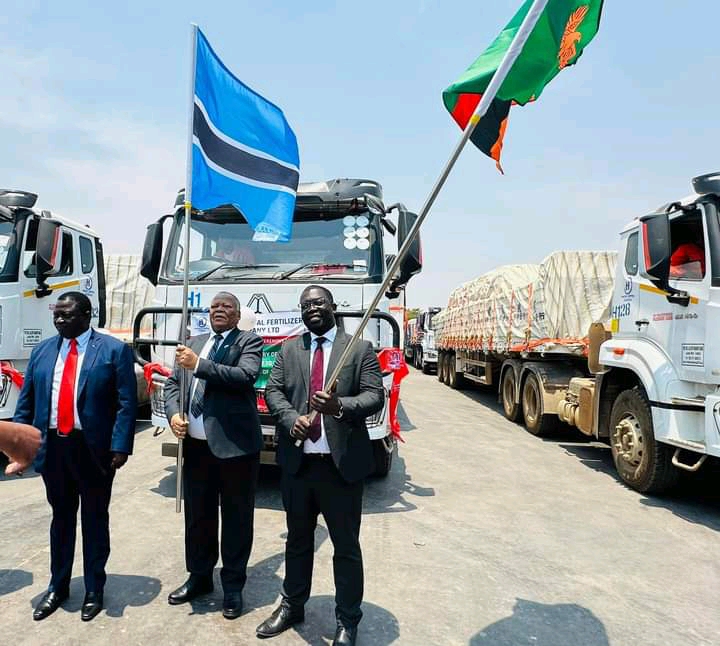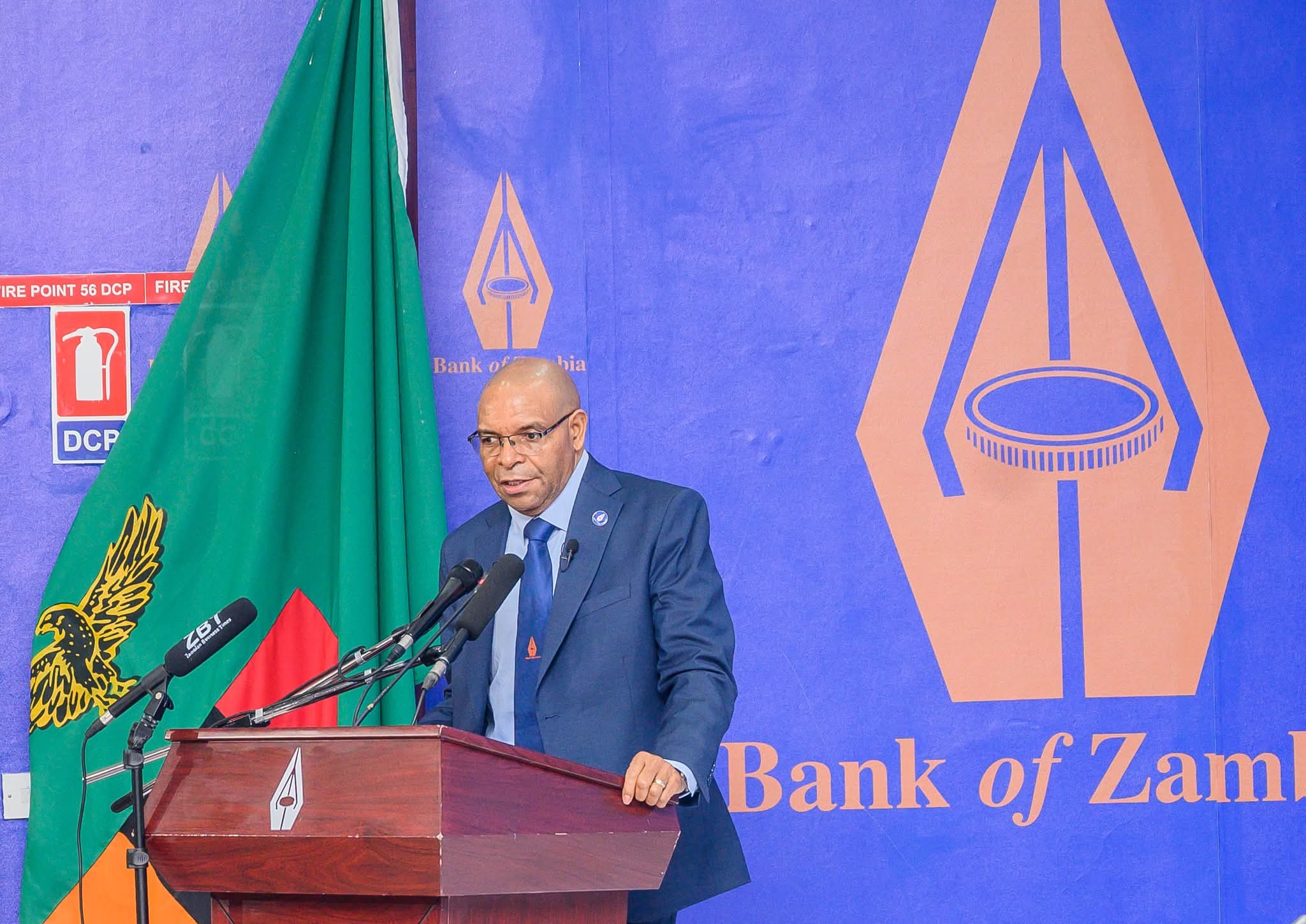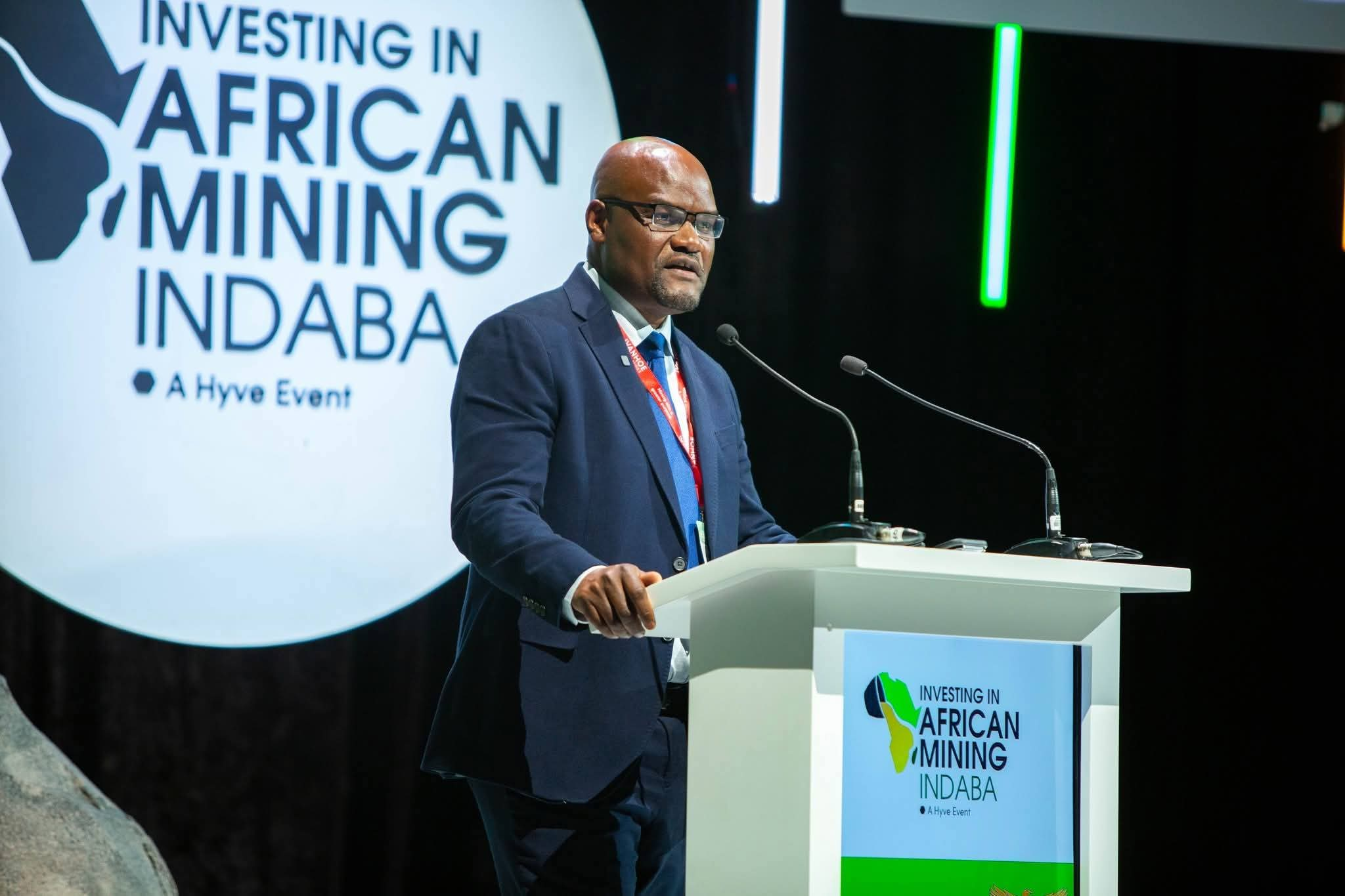Zambia has for the first time started exporting locally manufactured fertiliser, with the initial 15,000 tonnes of D-Compound consignment destined for Botswana.
Commerce, Trade and Industry Minister Chipoka Mulenga and Botswana High Commissioner to Zambia Alpheus Matlhaku flagged-off the supply and delivery of the fertiliser by United Capital Fertiliser (UCF) Zambia Company in Chilanga yesterday.
The 15,000 tonnes of D-Compound fertiliser will benefit micro-scale farmers in Botswana for the 2023/2024 agricultural season.
UCF board chairperson Chance Kabaghe said the company was awarded a contract to manufacture, supply and deliver the fertiliser to Botswana’s Ministry of Agriculture following the joint economic cooperation between Zambia and Botswana.
“This has never happened before since our independence. We had NCZ (Nitrogen Chemicals of Zambia) that just produced enough for ourselves, we never exported. For the first time in the history of this country, we have started exporting fertiliser to the region and earning foreign exchange for this country,” he said.
Mr Kabaghe said the order represented a very important part of economic integration of Zambia and Botswana and another success story of economic and trade cooperation between the two countries.
He said UCF fertilizer has been tested by nine quality authorities in six neighboring countries and has been certified as meeting international standards of the highest quality.
He said there was no Gross Domestic Product (GDP) that would grow without manufacturing for both domestic and foreign markets.
Mr Mulenga said President Hichilema had on several occasions, propagated investment and it was because of UCF coming on board that Zambia had become fertiliser-secure.
He said the Government would no longer be importing fertiliser since it was being produced locally.
Time has come for African countries to form economic pacts, having existed in tranquillity politically and that Botswana had demonstrated that, he said.
Mr Matlhaku said the 15,000 tonnes of fertiliser would only benefit a small segment of farmers under the Botswana government’s support and therefore, urged UCF to take advantage of the yawning market in the country to export its different types of fertiliser.
Mr Kabaghe said the activity was coming at a critical time when southern Africa was faced with risks of food security due to global events like the war in Ukraine, among other calamities, which had caused disruptions to fertiliser and food supply chains.
He said producing fertiliser and having seed locally would also enable Zambia achieve President Hakainde Hichilema’s vision of ensuring that the country became the main producer of maize, soya beans and wheat in Africa.
Mr Kabaghe also announced that UCF had started the expansion of the D-Compound fertiliser plant in August, this year and that construction was expected to be completed in March, 2024.
He said the project would increase UCF’s annual D-Compound fertiliser production to 800,000 tonnes per year in 2024.
The Urea plant, whose construction started in April, this year, would start producing Urea fertiliser next year, starting with 100,000 tonnes and increasing to 300,000 tonnes per annum by 2025.
He said UCF was on course to reach its medium- term target of producing 1.5 million tonnes of fertiliser by 2028.
Officiating at the ceremony, Mr Mulenga said exporting fertiliser to Botswana deserved to be celebrated because Zambia had always been known to be a net importer of anything.
But with what we are witnessing today, using the private sector, we are beginning to become part and parcel of that community which they call net exporters. Through export, through manufacturing, you will grow an economy,” Mr Mulenga said.








